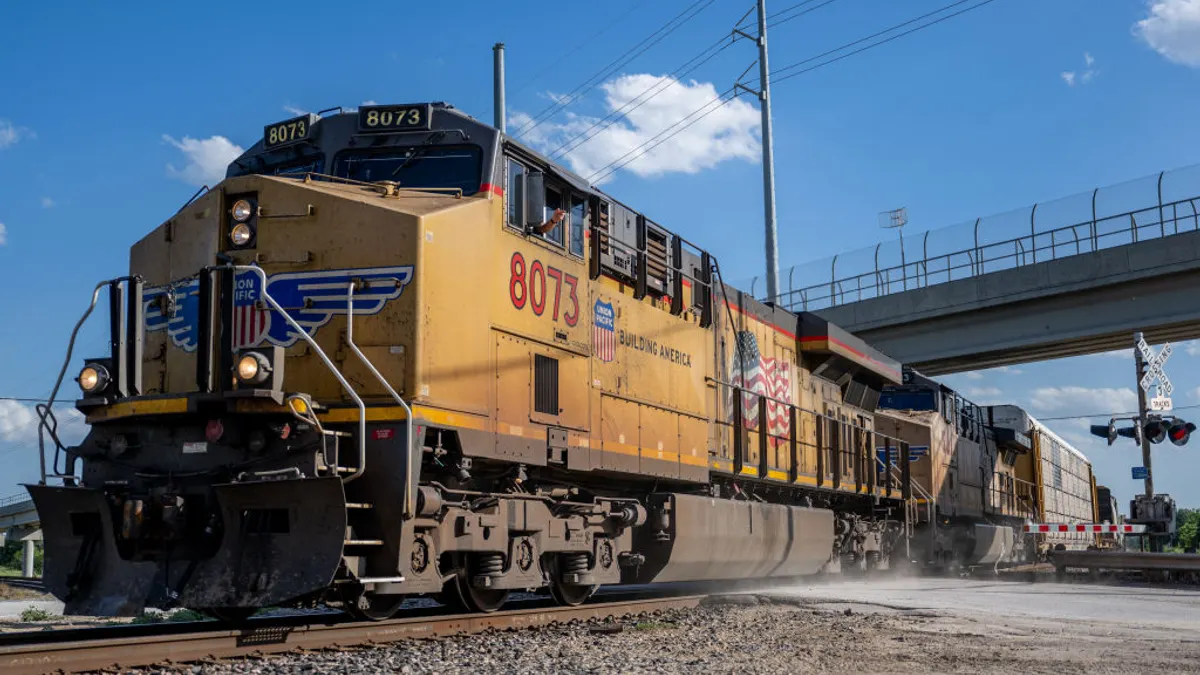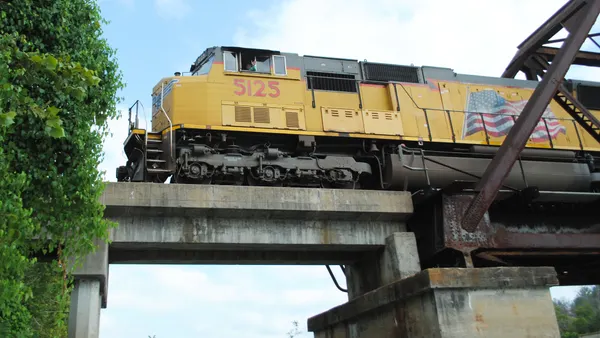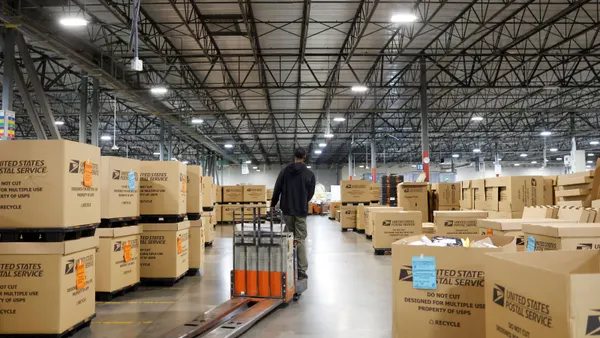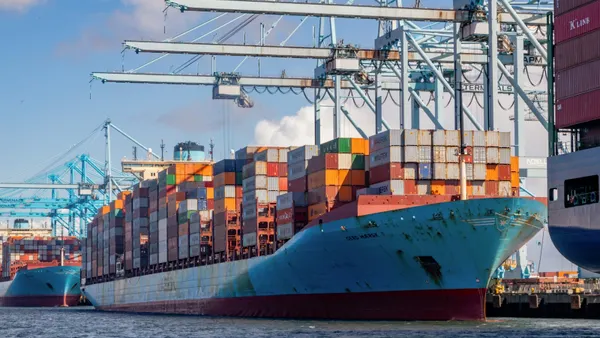Dive Brief:
- The Rail Customer Coalition has urged the federal Surface Transportation Board to assess the impact a Union Pacific-Norfolk Southern merger could have on competition within the rail industry, according to a Sept. 16 RCC letter sent to the agency.
- The RCC, which represents shippers in manufacturing, agriculture, energy and other industries, argued the transcontinental merger would lead to fewer Class I rail companies and competitive joint line options, per the letter.
- "The Board must rigorously evaluate the potential impacts of the merger and take meaningful action to enhance and protect competition, service, and supply chain stability," the letter said.
Dive Insight:
If approved by the STB, a Union Pacific-Norfolk Southern merger would connect more than 50,000 route miles across 43 states and roughly 100 ports, forming the U.S.' first transcontinental railroad, according to the carriers. Proponents argue the single-line coast-to-coast national rail service would reduce shipping costs through fewer handoffs between lines and shorter delays in getting goods to market.
“The RCC’s letter overstates the competitive risk,” Danielle Zanzalari, assistant professor of economics at Seton Hall University, said in an email to Supply Chain Dive. “Union Pacific and Norfolk Southern have very little network overlap, so the merger wouldn’t reduce options for shippers.”
The RCC letter does not counter those arguments directly. Instead, the organization focuses on the dangers of less competition from reducing the number of Class I railroads.
“A transcontinental merger could spark a new wave of consolidation, leaving captive shippers with even fewer Class I rail companies and competitive joint line options to choose from,” the RCC said, noting that the top-tier rail carriers control 90% of all freight traffic.
Past rail mergers that went unchecked resulted in poorer service, rising costs and job losses, the coalition said without citing examples. However, since the 1950s, the number of Class I freight railroads has fallen from over 100 to six, U.S. Sens. Tammy Baldwin, D-Wis., and Roger Marshall, R-Kan., said in a letter to the STB that raised concerns similar to the RCC's.
The industry group appealed to the Trump administration's efforts to strengthen U.S. manufacturing, secure supply chains and lower inflation, saying "we must be careful not to allow further consolidation in a critical transportation sector to undo that progress."
The STB expects to receive a merger application from Union Pacific and Norfolk Southern on or before Jan. 29, 2026. The railroads, which entered the merger agreement in July, plan to complete the transaction in 2027.















